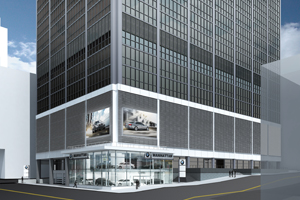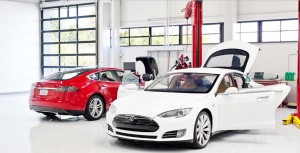The surge in recalls this year by General Motors and other automakers has underscored the vital role that franchise dealers play in the automobile industry – or so says the powerful dealer trade association – but there are a growing number of challenges to the century-old franchise system.
Dealers are facing a flood of work as recalls accelerate to a record pace – GM alone announcing service actions covering nearly 18 million vehicles sold in the U.S. so far this year. But other makers, including Toyota, Ford, Honda and Chrysler, have announced, or are facing the prospect of, millions more recalls in the months ahead.
Handling those repairs is one reason why a new study commissioned by the National Automobile Dealers Association, the trade association tasked with protecting the position of franchised dealers, argues that the century-old system is the most reliable and efficient way to deal with the nation’s auto buyers and owners.
There are nearly 17,700 new-car dealerships in the U.S., says NADA, with about 32,000 domestic and international franchises that employ more than 1 million people.
But the traditional franchise dealer is coming under increasing threat, notably from a David among the industry’s Goliaths.
Little Tesla Motors has set an aggressive goal of setting up a national network of factory-owned, rather than franchised, dealers. It has had mixed success so far, several states approving that approach, others setting up roadblocks. But a critical shift came in New York State this week when Gov. Andrew Cuomo signed a measure that attempts to straddle the fence.
(What are the highest-quality vehicles sold in the U.S.? Click Here to find out who topped the latest J.D. Power Initial Quality Study.)
The NY measure protects the traditional dealer system – but also opens a loophole allowing manufacturers of zero-emission vehicles, or ZEVs, to sell direct to the public – something that opens the door for Tesla. And a similar measure soon may go to Chris Christie, the governor of New Jersey. Tesla had expected to set up its showrooms until Gov. Christie sided with franchised dealers earlier this year and blocked direct sales. But he may reconsider if the NJ senate backs a bill that has already won unanimous support in the state assembly.
In California, meanwhile, Tesla has slipped around the franchise system because state law allows manufacturers to open their own dealerships if they have no other retail outlets. As a startup, Tesla has no other retail outlets.
Quietly, a number of other manufacturers are starting to reconsider the potential for opening their own, factory-operated stores. They’ve tried on a number of occasions over the years, but franchisees routinely pressure the makers to sell. With NADA’s deep pockets and lobbying prowess, other proposed changes to the automotive retail system, such as direct online sales, have long been stymied.
Nevertheless, the status of dealers is being challenged by free market purists, who claim the franchise system gives new car dealers an inordinate amount of privileges and protection in an era when Internet services like Amazon have become a more and more common alternative to brick-and-mortar retailing.
The new NADA study argues that only through a franchise system can the needs of manufacturers and consumers be properly balanced. For automakers, in particular, it sidesteps what could be a costly investment – dealers reportedly investing $200 billion to upgrade their facilities in recent years.
The average dealership now requires an investment of $11.3 million, including physical facilities, land, inventory and working capital. In addition, annual operating costs totaled $81.5 billion in 2013, an average of $4.6 million per dealership. These costs include personnel, utilities, advertising and regulatory compliance.
“Franchised dealers invest millions of dollars of private capital in their retail outlets to provide top sales and service experiences, allowing auto manufacturers to concentrate their capital in their core areas of designing, building and marketing vehicles,” the NADA study contends.
But even if the current system remains largely in place, dealers are coming under increasing pressure. Manufacturers have been demanding dealers upgrade their retail environment, noted one New York-based consultant, who asked not to be identified but has worked on makeovers for several different brands. “They get really uptight when I show up,” he noted.
(Alfa Romeo returning to North America with 86 dealers – but will rapidly grow, officials reveal. Click Here for the story.)
Nationwide, dealers have invested nearly $200 billion in dealership facilities in recent years, the new NADA study estimated, arguing that dealers bear the cost and risks of these investments—at virtually no cost to the manufacturers.
Whether Tesla’s push to set up its own dealer network will actually lead to broader changes in the automotive franchise system remains to be seen. And that’s true not only in the U.S. Manufacturers often have more leeway abroad but tellingly, Mercedes-Benz has moved to sell a number of large, company-owned dealerships in several major German cities and turn them over to independent dealers.
(Tesla confirms Model X battery-SUV will come to market in 2015. Click Here for more.)
Calls for a “retail revolution” have echoed for decades, but so far, there’s been little in the way of significant change.
(Paul A. Eisenstein contributed to this report.)



The OEM’s better be careful what they wish for. They cannot handle a recall without strife, let alone retail, warranty and face to face transactions.